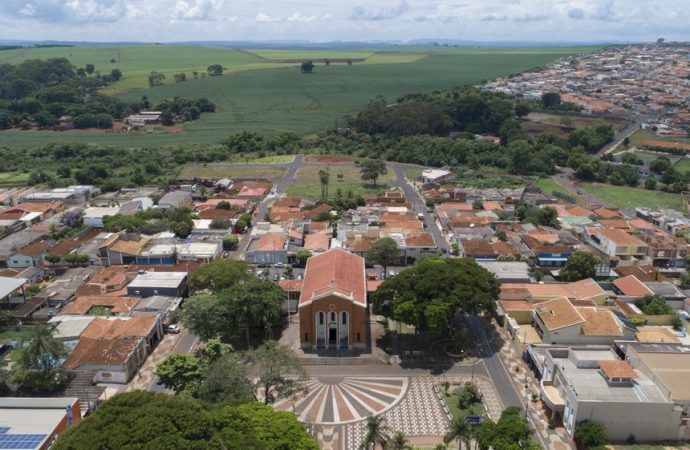Catholic leaders in Brazil are still exercising caution after a supreme court justice authorized the celebration of in-person religious services for the whole country on April 3.
Brazil is currently in the middle of the worst wave of its COVID-19 pandemic, with over 2,700 deaths a day. In March alone, 66,868 people died from the coronavirus.
The worsening of the pandemic in the South American country led many city mayors and state governors to ban activities that bring together groups of people. Restaurants, pubs, schools, and non-essential shops have been shut over the past few weeks in several regions. In-person religious celebrations were also often restricted.
Justice Kássio Nunes Marques approved a petition from the National Association of Evangelical Jurists forbidding Brazilian states and cities from banning religious services. In his decision, Nunes Marques claimed that such restrictions harm “the fundamental right to religious freedom.”
“I conclude that it’s possible to reopen temples and churches, as long as it’s prudently and cautiously done, that is, with due consideration to the minimal parameters of observation of social distancing and without unnecessary clustering of people,” the judge in his ruling.
He ordered that houses of worship should be allowed to accommodate 25 percent of their capacity, and that all churchgoers must wear a face mask and use hand sanitizers. Social distancing must also be observed during services.
Shortly after Nunes Marques’s decision, President Jair Bolsonaro, who nominated him for the Supreme Court in October, announced it on his Twitter account, since Evangelicals are a major part of the president’s coalition.
Given that it was a preliminary injunction, Nunes Marques’s decision can still be overruled by a full sitting of the Supreme Court. According to the Brazilian press, most of his colleagues are against the reopening of the churches in the country at this moment and will probably overturn his ruling.
The decision was received with mixed reactions from religious leaders. Some Evangelical churches, like the Worldwide Church of God's Power, held a big televised in-person celebration in São Paulo on Sunday. But in cities like Belo Horizonte, most Evangelical churches saw a low number of churchgoers, according to the newspaper O Estado de São Paulo.
In the Catholic Church, there have been in-person celebrations in a few cities, including Rio de Janeiro. Pictures published by O Estado de São Paulo show churchgoers sitting closely toether at the Metropolitan Cathedral of Rio de Janeiro, and not observing the measures Nunes Marques imposed in his ruling.
In São Paulo State, Archbishop Orlando Brandes decided to allow three Easter Sunday Masses with congregations present at the Basilica Shrine of Our Lady of Aparecida. The church has a maximum capacity of 35,000 people but only 1,000 could attend each liturgy. The actual number of attendees was much lower: according to the newspaper Folha de S. Paulo, only 154 people were present during the first Mass.
In São Paulo, Cardinal Odilo Scherer said on Easter Sunday that Nunes Marques’s decision hasn’t changed the archdiocese’s recommendation of celebrating Mass without the people present, given that “the pandemic situation didn’t change in São Paulo.”
“Our recommendation … does not originate in a prohibition. Our attitude comes from the concern about the pandemic situation, which is very serious, with many sick and dead,” Scherer said during a radio show.
Everthon Oliveira, president of the Brazilian Society of Catholic Scientists, said the decision comes at an “awkward moment,” and it may generate doubts about the gravity of the pandemic.
“The debate on the limits of the State to impose restrictions on religious services is relevant and legitimate, but it’s awkward that it’s happening during the peak of the pandemic, when all efforts should be directed to flatten the curve,” he told Crux.
The controversy, said Oliveira, may encourage pandemic denialism, which has been strong in Brazil and was partially inspired by Bolsonaro’s attempts to downplay the risks of the COVID-19 coronavirus.
According to Father Rino Bonvini, an Italian-born priest and physician who lives in Brazil, it’s not “reasonable” to fight for in-person celebrations while so many people are dying in the country.
“Brazil is now the country with the highest number of confirmed cases of contagion and deaths in the world. There’s no sense in deepening the problem by taking the people to churches,” he told Crux.
Bonvini claimed that the real motivation for some churches’ battle to reopen may be economic.
“I don’t want to be the judge, but if it was about spiritual needs, people could be satisfied with on-line celebrations. Why do some churches need in-person celebrations? Because they need the donations,” he said.
Cláudio Langroiva Pereira, a professor of Law at the Pontifical Catholic University of São Paulo, said the restrictions imposed by state and municipal governments on religious ceremonies during the pandemic are “legally valid and find support in the need to preserve life, despite their impact on the citizens’ freedom.”
“The moment requires that kind of measure. Considering the common sense and the critical state of our nation, I think it was an ill-conceived decision,” he told Crux.
Pereira, who is a member of the Archdiocese of São Paulo’s Justice and Peace Commission, also questioned the validity of the restrictions imposed by Nunes Marques in the ruling.
“Who will measure if a church actually occupied only 25 percent of its full capacity? It’s not feasible,” he said.
Pereira also said the Brazilian Catholic Church has been making all efforts to follow the basic principle of preserving life and has assumed a pedagogic attitude since the beginning of the pandemic.
“The Church’s decisions don’t depend only on the state’s rulings, but on its own principles. And we must remember that it never ceased to celebrate. Celebrations have always continued to happen, even though at times being virtually transmitted,” he said.

